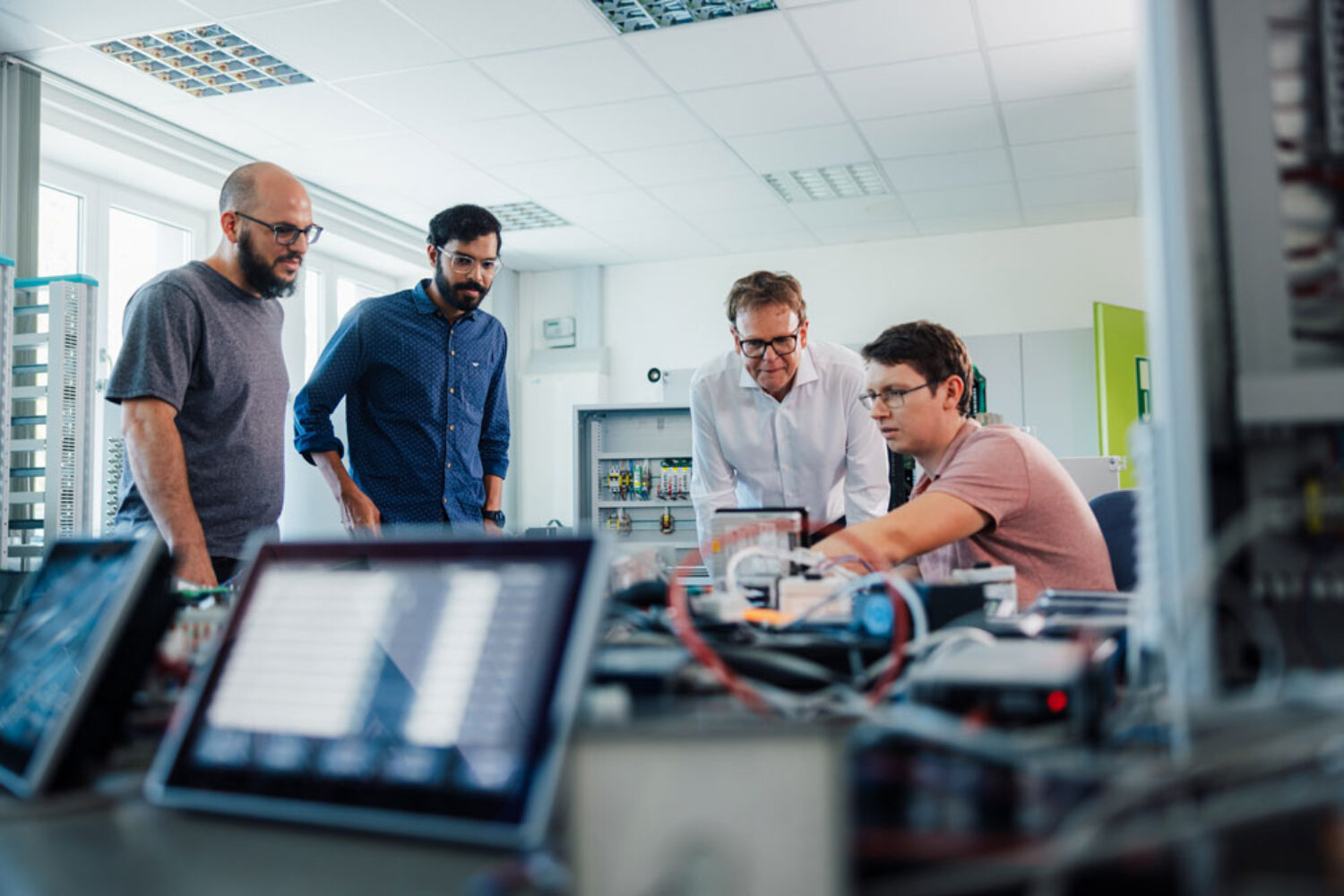One hundred years ago, physicist Siegfried Guggenheimer laid the foundation for Noris, the Nuremberg-based specialist in automation and sensor technology. To mark the company’s centenary, Managing Director Michael Schmidmer spoke with HANSA.
Who laid the foundation for Noris?
Michael Schmidmer: Our company’s history began on August 24, 1925, when physicist Dr. Siegfried Guggenheimer founded Noris Tachometerwerk GmbH in Nuremberg. As the name suggests, the initial focus was on mechanical tachometers, centrifugal switches, and tachographs. These products were primarily used in mechanical engineering, mining, aviation, and shipbuilding.
In 1937, Dr. Guggenheimer was forced to emigrate and sold the company to his friend – and my grandfather– Dr. Ernst Schmidmer. From Milan, Guggenheimer continued to manage international business in close contact with the Nuremberg site until his early death in 1938. Since 1942, Noris has been located on Muggenhofer Strasse – at the time surrounded by fields, today part of a major industrial zone.
What does the current Noris product portfolio include?
Schmidmer: We still produce analog display instruments, but our core focus today is on sensor technology, automation, and control systems. We serve key sectors such as shipbuilding, rail technology, engine and gearbox manufacturing, and meteorology.

How has Noris evolved over the past 100 years? What milestones stand out?
Schmidmer: A key milestone was the transformation from mechanical production to becoming a provider of integrated automation solutions. This shift involved extensive structural and technological changes, building new competencies and entering new markets. Shipbuilding became a cornerstone of our business.
As the shipbuilding industry moved increasingly to Asia, we established a presence in Singapore in 1982, followed by China in the early 2000s. Both locations have grown significantly and are now integral parts of our international group.
In Germany, a key post-reunification step was the opening of our Rostock branch, bringing us closer to maritime customers. Today, we supply solutions such as propeller control systems and, more recently, our first proprietary energy management system for sustainable shipping.
After two decades focused on maritime automation, we successfully entered the rail sector in 2003, supplying temperature and rotational speed sensors. Our products were well received for use in traction control, axle monitoring, and bogie diagnostics. Today, we also supply turbocharger speed sensors and combined temperature and level measurement solutions.
Is there a project in the maritime sector that you’re particularly proud of?
Schmidmer: There are certainly many projects worth mentioning. One standout example is our work with Deutz, where we automated ship propulsion systems and were the first company to implement a contactless system certified by Germanischer Lloyd. For a mid-sized company with 120 employees, this was a true pioneering achievement in ship automation.
What are the greatest global challenges in shipbuilding today?
Schmidmer: The industry is at a pivotal point. The shift from traditional mechanical engineering to digitalization is bringing new demands, and innovation cycles are becoming significantly shorter. Asian competitors are often more agile in introducing new technologies, and customer reluctance to adopt these is diminishing.
The industry also faces substantial environmental challenges. While technologies for greener shipping are largely in place, the global infrastructure required to support them is lacking – and I see little progress on that front.
How do you assess the situation in Germany?
Schmidmer: The German maritime supply industry is very well positioned globally. If political conditions remain stable, many companies will continue to have strong opportunities to invest and develop new technologies. I also see potential for German shipbuilding – particularly in the area of military contracts. There is still plenty of untapped potential.
Is there anything you’d like to see change?
Schmidmer: In short: fair competition and free trade – without new trade barriers. We welcome competition. What we need are level playing fields and consistent rules for all.
Looking ahead: Where do you see Noris in 100 years?
Schmidmer: That’s the million-dollar question! What will propulsion systems look like in 100 years? Will we still be building ships and trains as we know them – or will we be teleporting by then?
Whatever the future holds, our goal remains the same: to support our partners in drive technology with reliable, intelligent solutions – whether sensors, automation systems, software, or other smart technologies. And if teleportation really becomes a reality – then we’ll simply reinvent ourselves.

About Noris
- Employees: 240 worldwide
- Locations: Nuremberg, Rostock, Singapore, Shanghai, Rotterdam
- Products: Sensors, Automation & Control Systems, Radiosondes
- Industries: Maritime, Rail, and Meteorology













